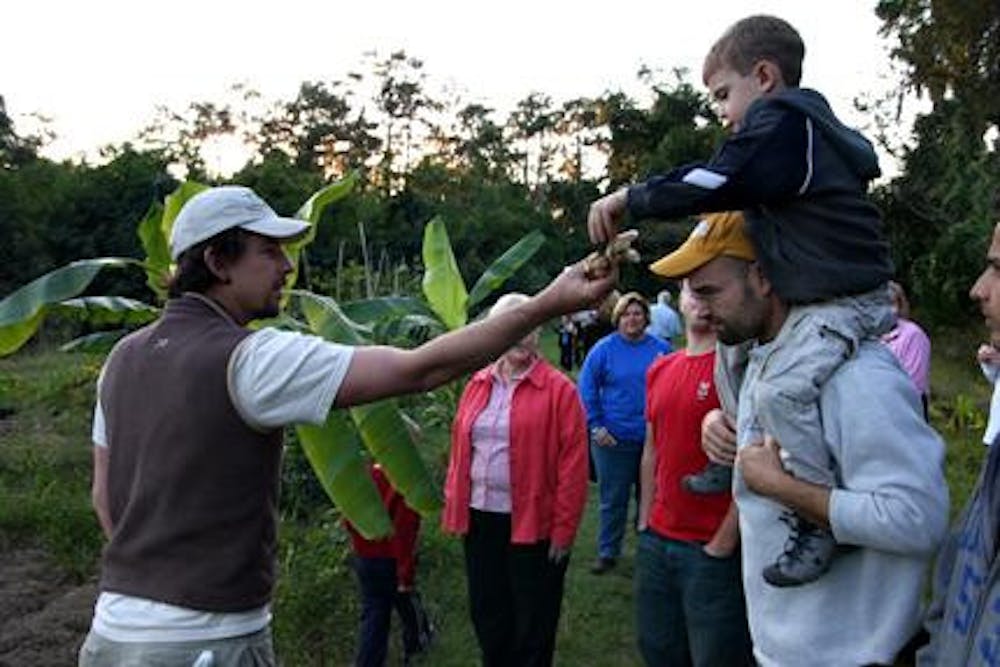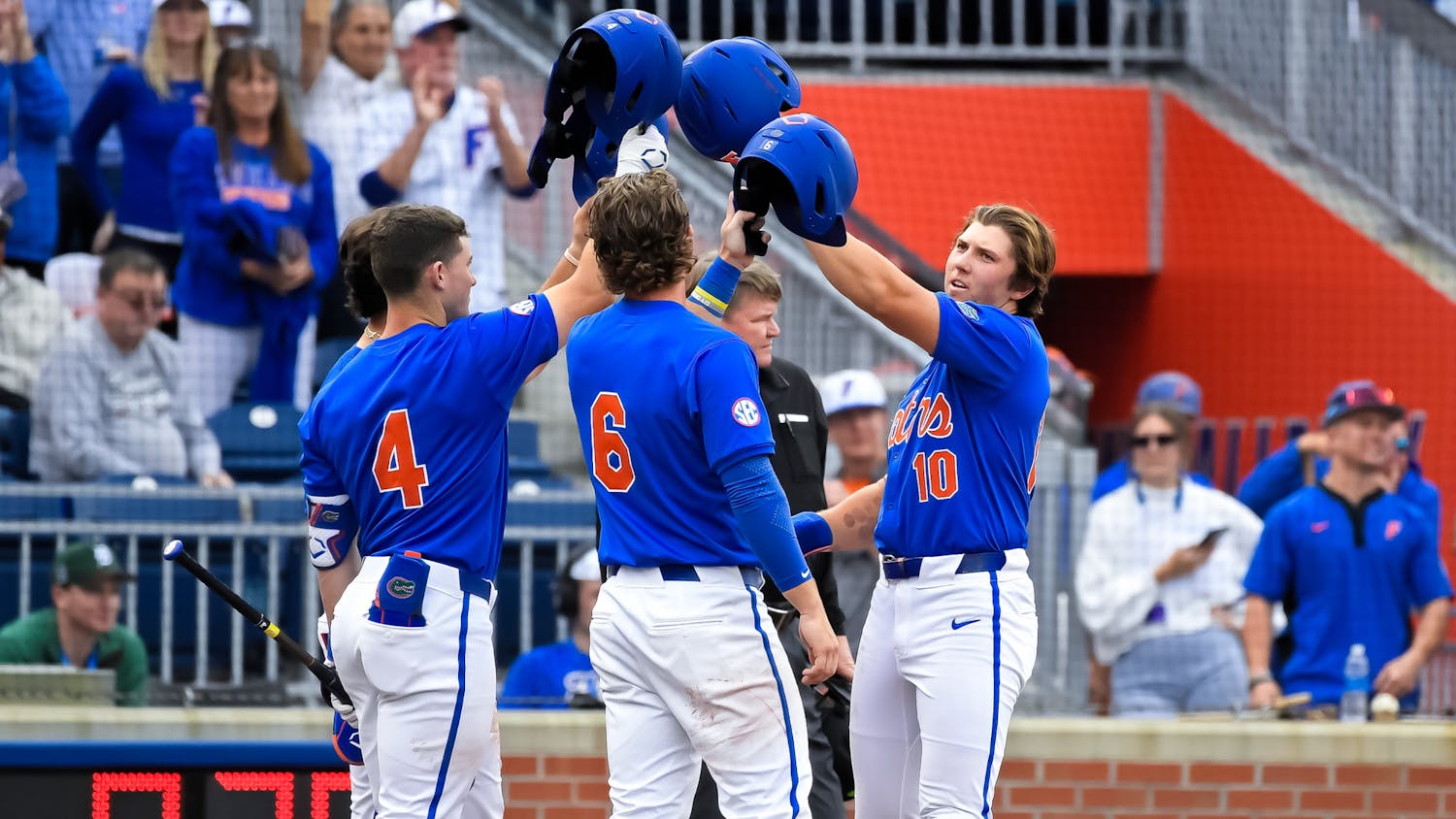For the last year and a half, the UF Ethnoecology Society has been turning a small plot of land on campus into a garden of edible plants, medicinal herbs and other exotic vegetation from around the world.
The garden is home to bean sprouts that are edible right off the vine, fresh basil, Mesoamerican sunflowers, cucumbers and more.
Although the garden, located down a dirt trail behind UF's Bat House, has mostly been used for the education of society members, the group now wants to share it with others.
As part of this effort, children and parents from Trinity United Methodist Church were welcomed to the garden Friday to get ideas for their own garden and nature club.
Jay Bost, president of the society and a graduate student in UF's School of Natural Resources and Environment, said he hopes the garden can be an educational resource for others in UF and Gainesville.
The garden, which features new signs labeling how plants are used by different cultures, exemplifies the principles of ethnoecology, the study of how different cultures interact with plants and animals in their specific environments.
Rick Stepp, UF associate professor of anthropology and member of the society, believes that fostering an awareness of nature in modern society is becoming harder.
"These kids out here today, they've probably never even thought about this many types of plants and all the different uses for them," Stepp said.
Some of the society's students even use the Echinacea, aloe and lemongrass grown in the garden for medicinal purposes, Stepp said.
Stepp's own research focuses on the ethnoecology of indigenous Mayan tribes in Mexico and Central America.
Children in these villages can name every important plant in their gardens by the age of 5, he said.
"These kids can do that with Pokemon characters, but they can't do that with plants," he said.
Stepp said ethnoecological knowledge is crucial to the survival of many cultures.
"In traditional cultures, they rely on plants for everything," he said. "Their entire medical system is organized around the use of medicinal plants. They don't go to doctors; They go out into the garden."
Stepp said UF had its own medicinal garden in the 1930s where pharmacy students were trained. The plants were used to treat students. But the use of medicinal plants in the United States has declined, Stepp said.
"Medicinal plants lost their importance, at least in our culture," he said. "But still, a lot of medicinals on the shelf have their origin in plant products or are still made from plants today."
Although the plants provide food and medicine, Dominique Ardura, an environmental science and biochemistry junior, said the best reward was the experience of working there.
Ardura, a member of the Ethnoecology Society, said her time working in the garden has been fulfilling and educational.
"I have always been into plants, but this has been a really big broadening for me because I've seen a lot more stuff in this place than I would've seen in three years on my own," she said.
The society ended the day with a barbecue of water-buffalo burgers, as they do every week. The burgers are provided by the society's faculty sponsor, Hugh Popenoe, who has a herd of water buffalo.






